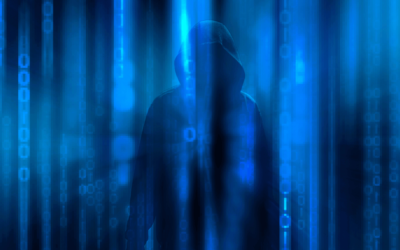Latest LastPass Scam: Everything you should know
Understanding and Protecting Yourself from the Latest LastPass Scam
After a sophisticated AI-powered scam targeting LastPass employees with deepfake audio calls impersonating CEO Karim Toubba earlier this month, I think it’s fair to say that cybersecurity threats are becoming more sophisticated, with phishing scams leading the charge. A notable example of such deceptive practices involves another scam targeting users of the password management service, LastPass. This article delves into the mechanics of the latest LastPass scam, its stages, and the necessary steps users should take to protect themselves.
Could you spot a scam if it sounded just like a call from LastPass support? Dive into our latest exploration of a sophisticated phishing scam targeting LastPass users, revealing how seemingly official communications could be a gateway for cybercriminals. Learn how to spot the red flags and protect your sensitive information from falling into the wrong hands.
How to Defend Against the Latest LastPass Scam
- Initial Contact: Automated Phone Call Alert
- False Security Measures: A Deceptive Choice
- Spoofed Follow-Up Call: Impersonation of LastPass Support
- Phishing Attempt: The Dangerous Link
- Hang Up Immediately
- Report Suspicious Activity
- Stay Informed and Vigilant
- TL;DR
How does the latest LastPass scam work?
Initial Contact: Automated Phone Call Alert
The LastPass scam begins with an automated phone call to LastPass users. This call falsely alerts the recipient about unauthorized access to their LastPass account from an unknown device. The message prompts the user to press ‘1’ to permit access or ‘2’ to block the alleged unauthorized attempt.
False Security Measures: A Deceptive Choice
Choosing to block access by pressing ‘2’ triggers another automated response, ensuring the user that a customer service representative will contact them shortly to resolve the issue. This step is designed to build false trust and anticipation, making the scam appear credible.
Follow-Up Call: Impersonation of LastPass Support
Subsequently, users receive a follow-up call, seemingly from LastPass. The caller, who poses as a LastPass employee, informs the user of an email sent to them, which includes a link to reset their account as a security measure.
Phishing Attempt: The Dangerous Link
The crux of the scam lies in the email. The link provided redirects to a counterfeit LastPass login page, designed to harvest the user’s credentials. Once entered, these credentials can be used by criminals to gain unauthorized access to the user’s account, potentially altering registered email, phone number, and password.
Immediate Steps to Take If Targeted:
Hang Up Immediately
If you receive an unexpected call claiming to be from LastPass, hang up immediately. Do not engage or follow any instructions provided during the call.
Report Suspicious Activity
It is crucial to report any dubious emails, calls, or messages related to your LastPass account. Forward suspicious emails as attachments, submit screenshots of questionable text messages, and provide details of suspicious calls to LastPass’s abuse team at abuse@lastpass.com.
Stay Informed and Vigilant
Always remember that legitimate services like LastPass will never ask for your master password through any communication channels such as phone, text, or email. Awareness and knowledge are your best defenses against scams.
-
How to Defend Against the Latest LastPass Scam
- Initial Contact: Automated Phone Call Alert
- False Security Measures: A Deceptive Choice
- Spoofed Follow-Up Call: Impersonation of LastPass Support
- Phishing Attempt: The Dangerous Link
- Hang Up Immediately
- Report Suspicious Activity
- Stay Informed and Vigilant
- TL;DR
TL;DR:
If you get a strange call from LastPass, just hang up. For anything suspicious, shoot an email to abuse@lastpass.com. Remember, LastPass won’t ever ask for your master password over the phone, in a text, or through email.
You might also like
The Hidden and Unexpected Costs of a Data Breach: Navigating the Cybersecurity Iceberg
The Iceberg Effect of Data Breaches Data breaches stand out as particularly devastating icebergs...
Navigate the Shifting Sands of Cybersecurity in 2024: Insights from South Florida’s Network Computer Pros
Cybersecurity in 2024 is a dynamic battleground, with new challenges and solutions emerging with...
Elevate Your Email Security with DMARC: A 2024 Guide from South Florida’s Network Computer Pros
In the ever-evolving cybersecurity landscape, staying informed and agile is not just advisable;...



